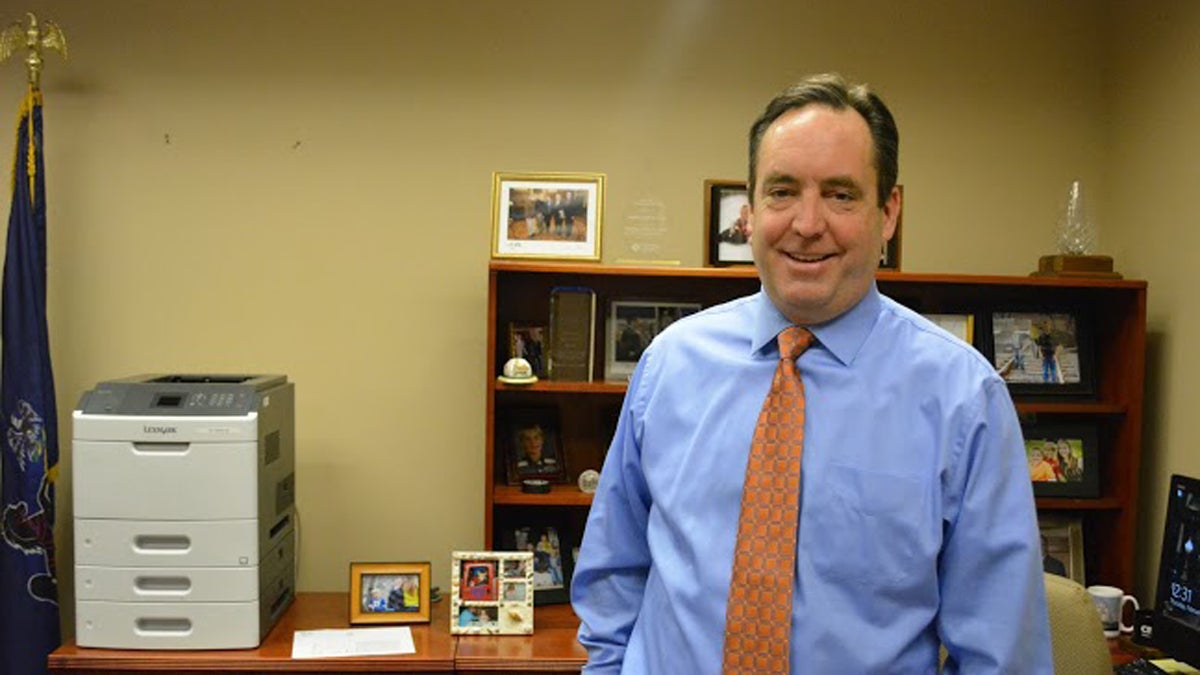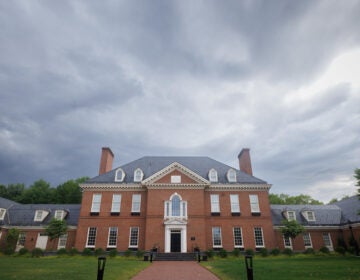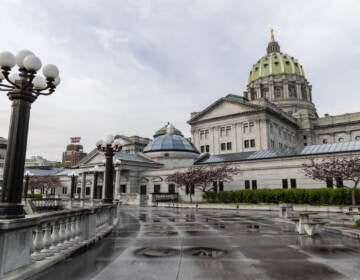Pa. House budget plan disliked in the Senate, but being considered as end to impasse
The budget’s completion still could hinge on whether the state House and Senate can agree on a gambling expansion.

Centre County's Jake Corman, the Pennsylvania Senate majority leader. (Kevin McCorry/WHYY)
The Pennsylvania House of Representatives has now sent the Senate most of the revenue components necessary to finish the state budget — more than three months behind schedule.
Senate leaders say they’ll make a good-faith effort to pass them, despite what they see as flaws.
But the budget’s completion might still hinge on whether the chambers can agree on a gambling expansion.
The main component of the House proposal is borrowing $1.5 billion against the state’s Tobacco Settlement Fund. That money would be paid back with interest over 20 years.
Most of the rest of the $2.2 billion deficit will be filled with one-time fund transfers.
Senate Majority Leader Jake Corman said his chamber is considering the House plan reluctantly.
“The one thing that’s leading us to really try and take a serious look at this — and trying to be supportive of this — is it would get us done,” he said. “There’s value in being done.”
“The likelihood of us amending it and sending it back and getting 102 votes for something else, I think, is a long shot at best,” Corman said.
Meanwhile, $265 million from a gaming expansion still must be negotiated, and there remain vital differences between the House and Senate on that point. In particular, Senate leaders oppose legalizing video gaming terminals in bars and taverns, a move the House favors.
“I’m going to make sure we do the best public policy,” said Corman. “I’m not going to keep setting policy to try and get to a high number.”
House Majority Leader Dave Reed said if the Legislature can’t agree on enough gaming revenue, the House won’t be able to pass funding for Penn State, the University of Pittsburgh, and Temple and Lincoln Universities. If that were to happen, it’s likely that tuition costs at these institutions would raise substantially for Pennsylvania residents.
WHYY is your source for fact-based, in-depth journalism and information. As a nonprofit organization, we rely on financial support from readers like you. Please give today.






